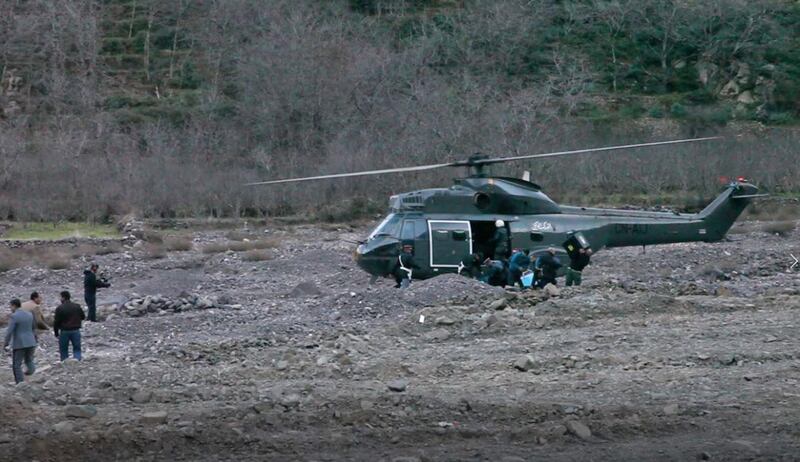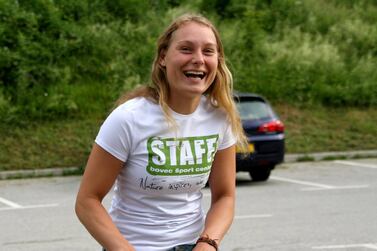Two dozen suspects are set to go on trial in Morocco on Thursday for offences linked to the gruesome murder of two young Scandinavian hikers late last year that shocked the North African country.
Danish student Louisa Vesterager Jespersen, 24, and 28-year-old Norwegian Maren Ueland had their throats slit before they were beheaded in December at an isolated site in the High Atlas mountains.
Three main defendants accused of direct involvement in the murders and who allegedly pledged allegiance to ISIS could theoretically face the death penalty.
A total of 24 defendants are due to appear before a criminal court in Sale to answer charges including promoting terrorism, forming a terrorist cell and premeditated murder.
A Spanish-Swiss convert to Islam is among the suspects who are due to face justice in the city near Rabat.
But families of the slain hikers and their lawyers will not attend the trial.
Nature lovers, the two friends shared an apartment and went to Norway's Bo University, where they were studying to be guides.
They had travelled together to Morocco for their Christmas holidays.
Their lives were cut short in the foothills of Toubkal, the highest summit in North Africa, some 80 kilometres from the city of Marrakesh, a tourist magnet.
After the bodies were discovered, the Moroccan authorities were initially cautious, referring to a "criminal act" and wounds to the victims' necks.
But that all changed when a video showing one of the victims being beheaded – filmed by one of the killers on a mobile phone – circulated on social networks.
One of the killers refers to "enemies of Allah" and revenge for brothers in Syria.
The video did the rounds online in Morocco, Norway and Denmark.
Danish police said last month they had launched prosecutions against 14 people suspected of sharing the gruesome video.
A separate video in the initial aftermath of the murder showed the alleged killers pledging allegiance to ISIS leader Abu Bakr Al Baghdadi, who appeared in a new video on Monday evening, under the terror organisation's banner.
Police quickly arrested a first suspect in the suburbs of Marrakesh, and three others were arrested a few days later when they tried to leave the city by bus.
Aged from 25 to 33, all had struggled to get by in poor districts of Marrakesh.
They made a living from "small jobs" and were educated to a "very low" level, according to investigators.
They had recently embraced Salafism, an ultra-conservative branch of Sunni Islam, according to friends, neighbours and some family members.
The "terrorist cell" was inspired by ISIS ideology, according to investigators.
But Morocco's anti-terror chief has said the accused had no contact with the group in conflict zones.
And ISIS has never claimed responsibility for the double murder.
Abdessamad Ejjoud, a 25-year-old street vendor referred to as the emir of the group by peers, is the suspected ringleader of the operational cell and a wider group he formed in Marrakesh, according to investigators.
Twenty others are due to face justice in Sale for links to the alleged killers.
Among them is Kevin Zoller Guervos, a Spanish-Swiss citizen living in Morocco.
Authorities allege he subscribes to "extremist ideology".
He stands accused of teaching the main suspects how to use encrypted communications and how to fire a gun, according to investigators.
Suspected of being a recruiter, he denied all charges when brought in front of an anti-terror judge.
Another Swiss citizen arrested after the double murder was tried separately and sentenced in mid-April to 10 years in prison for "forming a terrorist group" and for his links to another extremist network.






